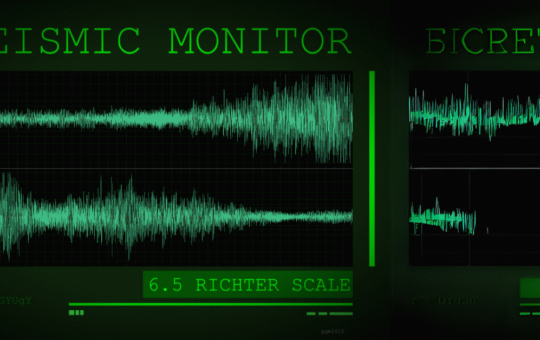
Level 1 Award in Introduction to Oil and Gas Operations
- Industry Insight: Gain a basic understanding of the oil and gas industry's processes, roles, and career opportunities.
- Safety Awareness: Learn about the importance of health, safety, and environmental (HSE) protocols in oil and gas operations.
- Career Foundation: Build a solid foundation for pursuing advanced qualifications or entry-level roles in the oil and gas sector.
- Global Relevance: Understand the global importance of oil and gas operations and their contribution to energy systems.
- Introduction to Technology: Explore the basic technologies and methods used in upstream, midstream, and downstream operations.
- Understand the basic structure and functions of the oil and gas industry, including upstream, midstream, and downstream sectors.
- Identify the key processes involved in oil and gas exploration, drilling, production, and refining.
- Recognize the importance of health, safety, and environmental (HSE) practices in oil and gas operations.
- Gain a foundational understanding of petroleum geology and the processes leading to hydrocarbon formation.
- Familiarize themselves with the roles and responsibilities of personnel working in the oil and gas industry.
- Explore career opportunities and pathways within the oil and gas sector.
- Introduction to the Oil and Gas Industry
- Overview of the global oil and gas market.
- The role of oil and gas in energy systems and economic development.
- Upstream Operations
- Basics of oil and gas exploration and production.
- Introduction to seismic surveys, drilling, and reservoir engineering.
- Midstream Operations
- Transportation and storage of oil and gas.
- Overview of pipelines, shipping, and processing facilities.
- Downstream Operations
- Fundamentals of refining and distribution.
- Overview of petrochemical production and end-user applications.
- Health, Safety, and Environmental (HSE) Practices
- Key principles of HSE in oil and gas operations.
- Introduction to risk management and environmental stewardship.
- Petroleum Geology Basics
- Understanding hydrocarbon formation and accumulation.
- Introduction to rock and fluid properties in oil and gas reservoirs.
- Careers in the Oil and Gas Industry
- Exploring entry-level roles and pathways for progression.
- Skills and qualifications required for various positions.
- Field Technician Assistant
- HSE Trainee
- Oil and Gas Operations Assistant
- Junior Drilling Crew Member
- Administrative Roles in Oil and Gas Companies
- Tailored for Beginners: Designed specifically for individuals with little to no prior knowledge of oil and gas operations.
- Practical Focus: Real-world examples and case studies to enhance understanding.
- Expert Tutors: Learn from industry professionals with hands-on experience in oil and gas operations.
- Career-Oriented: Prepare for entry-level roles and build a strong foundation for further study in the field.
- Flexible Learning: Study at your own pace with support from our experienced team.
Study Units
- Introduction to the Oil and Gas Industry
- Overview of the global oil and gas market.
- The role of oil and gas in energy systems and economic development.
- Upstream Operations
- Basics of oil and gas exploration and production.
- Introduction to seismic surveys, drilling, and reservoir engineering.
- Midstream Operations
- Transportation and storage of oil and gas.
- Overview of pipelines, shipping, and processing facilities.
- Downstream Operations
- Fundamentals of refining and distribution.
- Overview of petrochemical production and end-user applications.
- Health, Safety, and Environmental (HSE) Practices
- Key principles of HSE in oil and gas operations.
- Introduction to risk management and environmental stewardship.
- Petroleum Geology Basics
- Understanding hydrocarbon formation and accumulation.
- Introduction to rock and fluid properties in oil and gas reservoirs.
- Careers in the Oil and Gas Industry
- Exploring entry-level roles and pathways for progression.
- Skills and qualifications required for various positions.
Upon completion of this award, learners will be able to:
- Understand the basic structure and functions of the oil and gas industry, including upstream, midstream, and downstream sectors.
- Identify the key processes involved in oil and gas exploration, drilling, production, and refining.
- Recognize the importance of health, safety, and environmental (HSE) practices in oil and gas operations.
- Gain a foundational understanding of petroleum geology and the processes leading to hydrocarbon formation.
- Familiarize themselves with the roles and responsibilities of personnel working in the oil and gas industry.
- Explore career opportunities and pathways within the oil and gas sector.
The Level 1 Award in Introduction to Oil and Gas Operations is ideal for:
Career Starters
Individuals who are new to the oil and gas industry and want to gain foundational knowledge before pursuing advanced qualifications.
Aspiring Oil and Gas Professionals
Anyone looking to build a career in the oil and gas sector, particularly those considering entry-level positions.
Students and Graduates
People with little or no prior experience in the field, looking to explore career opportunities in oil and gas.
Job Seekers
Individuals seeking to enter the oil and gas industry or enhance their resumes with a basic understanding of its operations.
HSE Enthusiasts
Those interested in health, safety, and environmental (HSE) practices within the oil and gas sector.
Energy Sector Enthusiasts
Individuals who are passionate about energy systems and want to understand the integral role of oil and gas in global economies.
Our assessment process is designed to ensure every learner achieves the required level of knowledge, skills, and understanding outlined in each course unit.
Purpose of Assessment
Assessment helps measure how well a learner has met the learning outcomes. It ensures consistency, quality, and fairness across all learners.
What Learners Need to Do
Learners must provide clear evidence that shows they have met all the learning outcomes and assessment criteria for each unit. This evidence can take different forms depending on the course and type of learning.
Types of Acceptable Evidence
Assignments, reports, or projects
Worksheets or written tasks
Portfolios of practical work
Answers to oral or written questions
Test or exam papers
Understanding the Structure
Learning outcomes explain what learners should know, understand, or be able to do.
Assessment criteria set the standard learners must meet to achieve each learning outcome.
Assessment Guidelines
All assessment must be authentic, current, and relevant to the unit.
Evidence must match each assessment criterion clearly.
Plagiarism or copied work is not accepted.
All learners must complete assessments within the given timelines.
Where applicable, assessments may be reviewed or verified by internal or external quality assurers.
Full learning outcomes and assessment criteria for each qualification are available from page 8 of the course handbook.
Top Courses
Related Courses
Let's Get in touch
Deleting Course Review
Course Access
This course is password protected. To access it please enter your password below:



